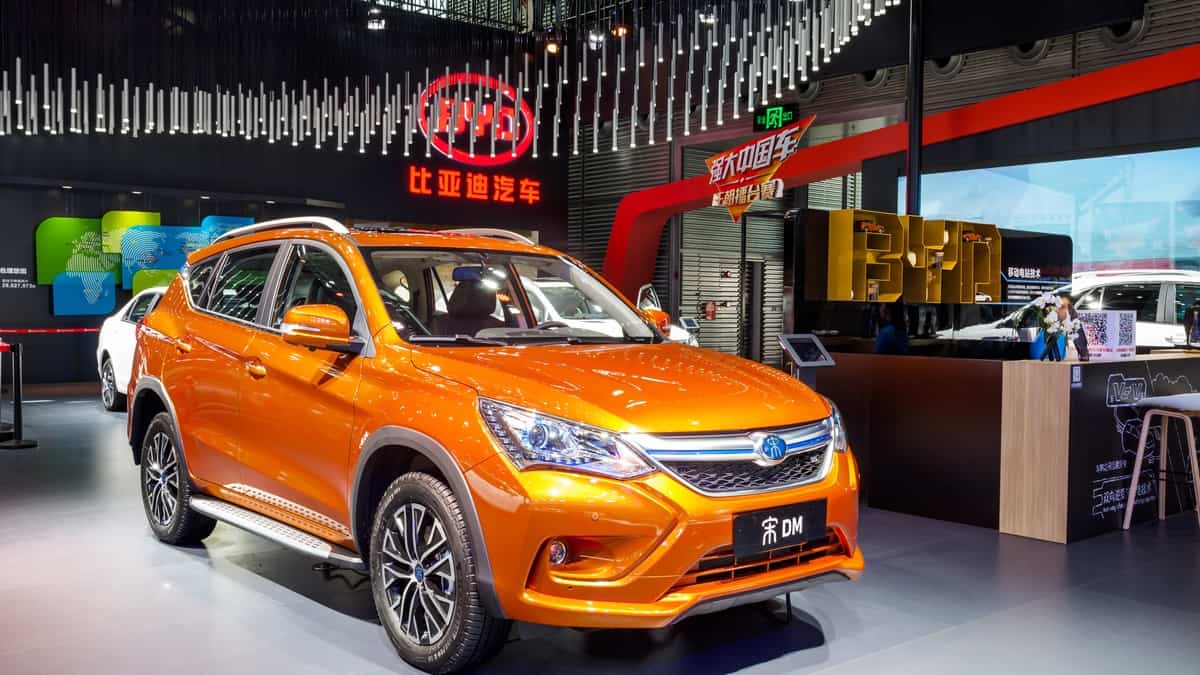From Aion to Nio, major Chinese electric vehicle manufacturers are joining the likes of Xpeng Motors in an industry-wide price war sparked by Tesla, giving generous sales incentives to propel the growth after posting dismal January delivery results.
The China Passenger Car Association (CPCA) stated in a post on Wednesday, mentioning January sales figures, that sales growth for new energy vehicles (NEVs) has reached a snag after the central government eliminated subsidies for purchasing them at the end of December.
In China, “NEVs” refers to all-electric vehicles, plug-in hybrids, and hydrogen fuel-cell vehicles.
A price war started by Tesla has put many consumers off buying an EV soon, as some carmakers followed suit with price drops while others increased rates to help offset rising costs, according to the industry group.
CPCA figures dropped by 1% yearly
According to CPCA figures released on Wednesday, retail sales of Chinese passenger electric vehicles fell 1% yearly and 43% month on month to around 304,000 units from January 1 to January 27.
The industry group has yet to release full-month figures, but reports from many Chinese EV manufacturers show an evident sales slump.
GAC’s Aion confirmed a 66% month-on-month decline in vehicle shipments to 10,206 units in January, during which period the company raised car prices by RMB 3,000 to RMB 8,000 to compensate for rising costs.
Xpeng Motors‘ and Huawei-backed EV brand Aito’s sequential sales figures have more than halved to 5,218 and 4,475 units, respectively. Both companies responded to Tesla’s move by slashing prices throughout their vehicle lineups early last month.
Nio produced 8,506 vehicles in January, a 46.2% decrease from the previous month, while Li Auto delivered 15,141 vehicles, a 28.7% decrease from the last month. CATL-backed Hozon sold 6,016 EVs, a 22.8% decrease from the previous month.
As demand slows, sales of major Chinese EV manufacturers fell by double digits in January
Zeekr’s January sales of 3,116 vehicles were less than a third of what they were in December, which the company credited to a 22-day production halt for an upgrade at its Ningbo facility.
The Hong Kong-listed Leapmotor only produced 1,139 vehicles, an 86.6% decrease from the previous month, but further details still needed to be provided.
According to a Wednesday statement, BYD delivered 151,341 EVs, including approximately 10,400 units abroad, 35% lower than December sales but 62.4% higher than last year.
Other than decreasing subsidies, most companies blamed the drop on the seven-day national holiday during the Lunar New Year and a coronavirus disease surge that swept China after the country’s zero-Covid policy ended in early December, among other aspects.
Nio’s big break
Nio started providing customers a bundle of discounts and special offers for its first-generation electric sports utility vehicles on Wednesday, including a more than RMB 10,000 ($1,483) allocation to cover the price hike caused by the phasing-out of Beijing’s subsidy.
According to two Nio salespeople, the EV maker also unexpectedly discounted inventory of older versions of its ES8 and ES6 crossovers by at least RMB 18,000 and provided existing car owners an additional RMB 15,000 exchange discount on Thursday.
Among other promotions, the company gave customers free access to its advanced driver assistance application Nio Pilot, which generally costs RMB 39,000.
When these offers are combined, a quality 2022 ES6 SUV can be purchased for RMB 313,700, more than RMB 100,000 less than last month.
Nio responded on Thursday by stating that the organization is about to release its redesigned ES8, ES6, and EC6 models and is thus offering discounts on the limited stock and showroom cars of the old models it has left.
According to a Wednesday statement, sales of Nio’s ET7, ES7, and ET5 cars, built on the company’s second-generation technology platform, account for 85.6% of its monthly shipment in January.
More price promotions
State-owned automakers SAIC and GAC also announced price cuts this week to capture a portion of sales during a typically slow season.
Rising Auto, an EV brand launched in mid-2020 by Volkswagen’s manufacturing partner SAIC, reduced the base price of its base R7 crossover by 7.5% to RMB 279,900 on Thursday.
The model is also available at an RMB 10,000 discount and can be ordered for RMB 195,900 if customers sign up for its battery-swap program.
GAC’s EV unit Aion also started offering an RMB 5,000 discount on its Aion Y SUVs and Aion S Plus sedans, which start at RMB 137,600 and RMB 149,800, respectively, until the end of the month on Wednesday.
Geely’s luxury EV brand Zeekr announced a day earlier that customers who place orders before the end of March would be eligible for discounts on auto insurance and additional parts.

